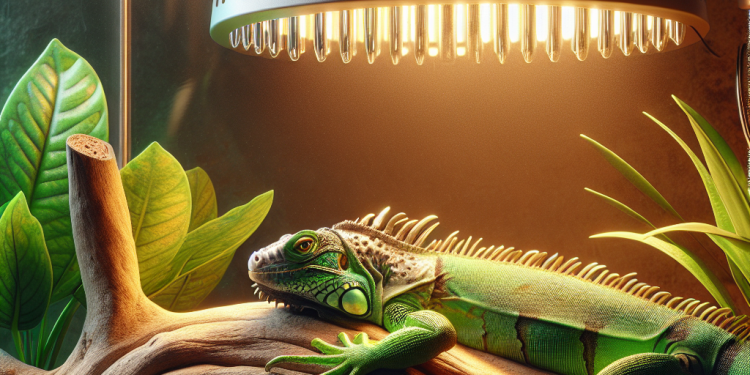The soft glow of the basking lamp casts a warm light over the terrarium, where captive reptiles rely on the careful emulation of their natural habitats to thrive. This replication extends beyond mere comfort; it is an ethical imperative that encompasses the provision of both basking and UVB light for their physiological and psychological health. UVB light plays a crucial role in the synthesis of vitamin D3 in reptile skin, which is essential for calcium uptake and overall health. Without UVB lighting, reptiles can become malnourished and develop Metabolic Bone Disease (MBD), leading to softening of the bones, deformities, and fractures.
The natural synthesis of vitamin D3 through UVB exposure is preferred over dietary supplements, as it ensures proper absorption of dietary calcium. Moreover, basking bulbs, while necessary for warmth, do not provide UVB. This necessitates the use of specialized UVB lamps, which also emit UVA light, contributing to the psychological health of reptiles by aiding in recognition and stimulating feeding responses.
The importance of UVB lighting is further underscored by the fact that reptiles are ectothermic and rely on external heat sources to regulate their body temperature. A proper temperature gradient within the enclosure, provided by a basking zone and a cooler zone, allows reptiles to self-regulate their body temperature, which is crucial for maintaining their immune system. The UV Index and Ferguson Zones are tools that help determine the specific UVB needs of different reptile species, ensuring that each species receives the appropriate level of UVB light. High-quality UVB lights from reputable brands are designed to last up to a year, but they should be replaced every six to twelve months to prevent solarisation and ensure the health of the reptiles.
It is also critical to provide a spectrum of light that includes both UVA and UVB for the physical health of captive reptiles and to promote natural behaviors. Reptiles can see UVA light, which plays a significant role in their ability to recognize each other and stimulate feeding responses. Full spectrum lighting supports these natural behaviors and is vital for the psychological well-being of reptiles. The term “full spectrum” refers to lights that cater to the needs of both reptiles and live plants within an enclosure.
The presence of UVA light in UVB lamps ensures that reptiles are exposed to a range of light that mimics their natural environment. This spectrum of light encourages natural behaviors such as basking, foraging, and social interactions, which are essential for their mental health. Additionally, the photoperiod, or the cycle of light and dark in an enclosure, should mimic a reptile’s natural environment to support their circadian rhythms. The use of timers for light sources can help maintain a consistent day/night cycle, further contributing to the psychological well-being of captive reptiles. It is also important to note that different reptile species require different basking temperatures, and providing hiding spots in both the basking and cooler zones of their enclosure helps them feel secure and manage stress.
Ethical reptile care demands the creation of an environment that allows for thermoregulation through a proper temperature gradient. Reptiles need to warm up their bodies daily using external heat sources and require the ability to adjust their exposure to heat for optimal body temperature regulation. This is achieved by providing a basking zone with an appropriate temperature range, which varies among species. For example, bearded dragons prefer basking spots around 95-110°F (35-43°C).
The cooler zone of the enclosure allows reptiles to escape the heat when necessary, mirroring the diverse habitats they originate from in the wild. Ceramic heat emitters and basking bulbs emit heat and need to be controlled by a thermostat to prevent overheating and ensure a stable environment. The temperature gradient is essential for thermoregulation, which is critical for reptile health as it impacts their digestion, immune system, and overall physiological function.
Additionally, reptiles like certain species of tortoises benefit from exposure to natural sunlight, which should be provided when weather permits. This not only offers UVB light but also reinforces the natural temperature fluctuations they would experience in the wild. The ethical imperative to replicate these conditions in captivity is clear, as it allows reptiles to engage in thermoregulatory behaviors essential for their survival.
Our ethical obligation is to promote the welfare of captive reptiles by offering conditions that measurably improve their health and well-being. By providing UVB light, we are not attempting to perfect nature but to ensure that captive reptiles have the necessary resources to thrive. The use of UVB lighting is a science-based approach to reptile care that has been shown to prevent diseases like MBD and support the natural behaviors and physiological processes of these animals. It is a tangible and necessary aspect of responsible husbandry that prioritizes the health and welfare of reptiles in human care.






